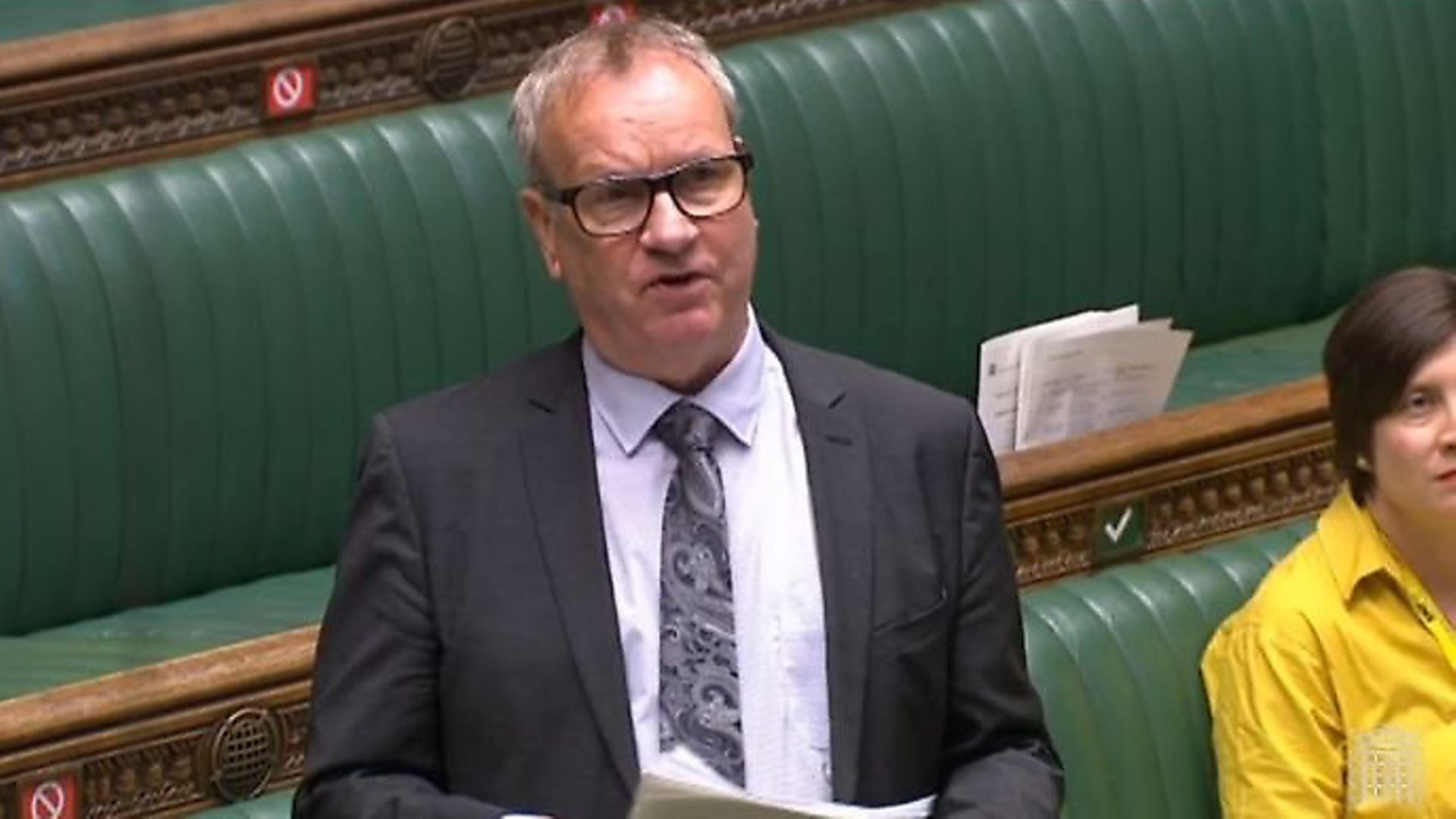
Tory MPs have voted down a bill that would have prevented a prime minister being nominated without the consent of parliament.
The legislation would have forced any future prime ministerial contender to first seek the support of fellow MPs before they could take up the role.
The proposals were brought forward by SNP cabinet office spokesman Pete Wishart who insisted any prime minister should demonstrate that they have the confidence of the Commons.
The Prime Minister (Nomination) and Cabinet (Appointment) Bill was borne out of opposition MPs’ frustration that Theresa May and Boris Johnson had both assumed the top job without being popularly elected.
‘Since 2015, the UK has had two prime ministers appointed outside of a general election, determined exclusively by the membership of the Conservative Party of the United Kingdom,’ Wishart said.
‘And looking at the current incumbent, we could only surmise at the efficacy and the good sense inherent at the current arrangements.
‘This House must never again have an unelected prime minister forced upon it.’
The legislation would also have required cabinet appointments to be approved by parliament and would have been triggered by a general election, the Queen accepting a prime minister’s resignation, the prime minister’s office becoming vacant for reasons other than resignation such as death, or if they were to stop being an MP.
But attempts to introduce the watershed proposals into law were quashed when it was defeated in the Commons by 115 votes to 55.
One of the criticisms behind it was that the speaker of the house, Sir Lindsay Hoyle, could end up determining who became prime minister.
The bill would also create the office of ‘acting prime minister’ in the event that the incumbent is unable to fulfil their duties – an amendment sparked by Johnson’s latest absence due to Covid-19.
Wishart added: ‘We must start to exert control and authority in what’s done in this government’s name…This is a sensible and practical bill to bring this House into the 21st century.’
Peter Bone, one of the Tory MPs to oppose the legislation, said it would mean that the speaker of the House would in fact be a position to approve the nomination of a prime minister after the Commons had voted.
Suggesting that this could have meant that Labour’s former leader Jeremy Corbyn could have become prime minister of a Conservative government, he said: ‘What would have happened when (Theresa May) resigned if that proposition was in place and we had Speaker (John) Bercow in the chair?
‘And it would not have been impossible to see the situation where the opposition combined to vote for (Jeremy Corbyn) and maybe one or two disenchanted Conservatives joined that vote.
‘And then would be proposing to the Queen that (Corbyn) was prime minister of a Conservative government which nobody on these benches would support and everyone on those benches.
‘It’s a nice try but honestly, that doesn’t work.’









